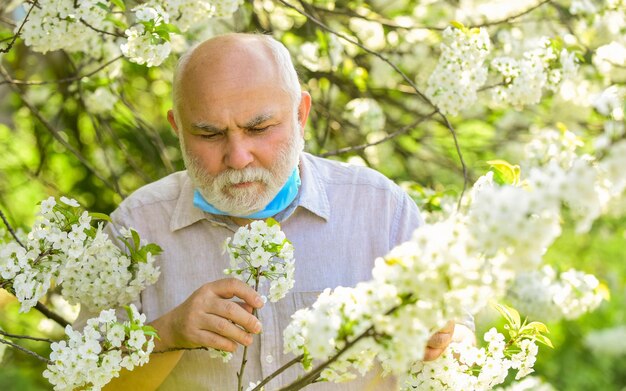Decoding the Enigma: What Does Parkinson's Smell Like?
Imagine walking into a room and immediately knowing that something is different—not by sight or sound, but by smell. This isn't the plot of a mystery novel, but rather the intriguing reality some people experience when it comes to Parkinson's disease. So what exactly is the scent of Parkinson's, and why does it matter?
Unraveling the Mystery of Parkinson's Disease
Parkinson's disease is more than just a neurological disorder; it's a journey through uncharted territories for many who live with it. It primarily affects movement, but its symptoms and manifestations can also include tremors, stiffness, and difficulties with balance. Approximately 10 million people worldwide are living with Parkinson's, making the quest for understanding and managing it an ongoing challenge.
From Symptoms to Scents
You might wonder, how did the idea of a distinct scent associated with Parkinson's even come into play? Joy Milne, a retired nurse from Scotland, reported that she could identify a unique odor associated with individuals diagnosed with the disease. Milne noticed this change in her husband long before his official diagnosis, which led researchers to explore her claims.
The Science Behind the Smell
How Can Parkinson's Create a Smell?
Sebaceous glands, which produce oils for our skin, can become overactive in people with Parkinson's, leading to changes in skin chemistry. These changes might be responsible for the distinctive aroma. Researchers have identified specific compounds in sebum—an oily secretion from the skin—that may account for this characteristic odor.
Scientific Validation
A study conducted at the University of Manchester involved swab tests from the backs of Parkinson's patients and healthy individuals. The findings confirmed that certain molecules unique to Parkinson's appeared in the samples. The scent isn’t something easily detected by the average person, making Milne's ability a rare gift.
The Implications of Identifying Parkinson's by Smell
Diagnosing Parkinson's Earlier
The potential for early diagnosis is revolutionary. With no definitive test available, Parkinson's often goes undiagnosed until significant neurological damage has already occurred. A "smell test" could provide earlier detection, improving treatment outcomes.
Beyond Diagnosis: A Personalized Approach
Understanding the unique olfactory signature of Parkinson's could lead to customized treatments. By tracking these scent markers, medical professionals could monitor disease progression and effectiveness of therapies over time.
Navigating Life with Parkinson’s
Practical Strategies for Managing Symptoms
While understanding the scent of Parkinson's opens doors for early detection, living with the disease involves ongoing management. Here are strategies to navigate daily life with Parkinson’s:
- Exercise Regularly: Physical activity can alleviate symptoms. Activities such as yoga, tai chi, and walking improve balance and mobility.
- Nutrition Matters: A balanced diet rich in antioxidants and omega-3 fatty acids supports brain health. Staying hydrated and eating a fiber-rich diet can also help prevent constipation, a common Parkinson’s issue.
- Seek Support: Connecting with support groups can provide emotional comfort and valuable advice.
How Caregivers Can Help
For those supporting someone with Parkinson’s, understanding the disease is just as important:
- Educate Yourself: Knowledge is empowering. Understanding symptoms makes you better prepared to offer assistance.
- Be Patient: Parkinson's is unpredictable and can be frustrating. Patience and empathy go a long way in providing adequate support.
- Encourage Independence: Allow those with Parkinson's to maintain autonomy where possible, fostering confidence and self-reliance.
The Broader Impact of Olfactory Research
New Avenues for Other Diseases
Identifying disease-specific odors isn't confined to just Parkinson's; it could change the diagnostic landscape for other conditions as well. Research is exploring scents associated with ailments like Alzheimer's and certain cancers, making the nose a surprisingly powerful diagnostic tool.
The Future of Scent-Based Diagnostics
The possibility of smell tests opens new frontiers in medical diagnostics. Future studies might refine olfactory-based testing, providing a non-invasive, inexpensive option for disease detection, revolutionizing how we approach health care.
Final Insights
The connection between Parkinson's and its unique scent is more than an odd curiosity; it's a gateway to understanding, early detection, and potentially more effective treatments. While Joy Milne's extraordinary sense of smell has illuminated this path, further research is essential to fully harness these insights for broader medical applications.
Living with Parkinson's is a dynamic, challenging experience involving the entire community—patients, researchers, and caregivers alike. By exploring all angles, from peculiar odors to strategic everyday adaptations, we embark on a journey of hope, innovation, and empowerment.
Summary of Key Takeaways:
- Unique Scent: Parkinson's could have a distinctive odor due to changes in skin chemistry.
- Early Detection: Smell tests could allow for earlier diagnosis and management.
- Living with Parkinson’s: Engaging in exercise, a balanced diet, and strong support networks is crucial.
- Ongoing Research: Understanding smells may pave the way for non-invasive diagnostics in various diseases.
- Empathy and Patience: Caregivers play a vital role by being informed, patient, and supportive.
🌟 Next Steps:
- 🌿 Consider lifestyle changes to manage Parkinson’s effectively.
- 🧠 Stay informed about advances in smell-based diagnostics.
- 🤝 Connect with support networks for additional resources and guidance.

Related Articles
- Are There Environmental Causes Of Parkinsons
- Can Alcohol Cause Parkinson's
- Can Concussions Cause Parkinson's
- Can Females Get Parkinson Disease
- Can Head Trauma Cause Parkinson's
- Can Parkinson Disease Cause Dizziness
- Can Parkinson's Affect Eyesight
- Can Parkinson's Affect Memory
- Can Parkinson's Affect Speech
- Can Parkinson's Affect Vision
